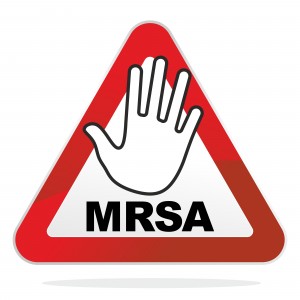CF Drug Developer Savara Meets Primary Endpoint for Treating MRSA in Phase 2 Trial
Written by |

 A phase 2 trial from Savara Pharmaceuticals investigating its lead product AeroVanc to treat methicillin-resistant Staphylococcus aureus (MRSA) infections in cystic fibrosis patients met a key primary endpoint. Patients treated with AeroVanc experienced a significant reduction in MRSA density in their sputum compared to patients given a placebo. Treatment was effective against all strains of MRSA, and there was no change in the minimum dose to see an effect during the study.
A phase 2 trial from Savara Pharmaceuticals investigating its lead product AeroVanc to treat methicillin-resistant Staphylococcus aureus (MRSA) infections in cystic fibrosis patients met a key primary endpoint. Patients treated with AeroVanc experienced a significant reduction in MRSA density in their sputum compared to patients given a placebo. Treatment was effective against all strains of MRSA, and there was no change in the minimum dose to see an effect during the study.
“The consistency of effect across all clinically relevant endpoints in the AeroVanc study was very encouraging, as was the magnitude of the treatment effect,” said Michael Konstan, MD, Chairman of the Department of Pediatrics of Case Western Reserve University School of Medicine, and Rainbow Babies and Children’s Hospital, in a news release from the company. “The unmet need in people with cystic fibrosis and persistent MRSA is substantial, and this study gives much hope for an important new therapeutic option.”
AeroVanc is a dry-powder formulation of vancomycin, an intravenous antibiotic approved by the FDA to treat MRSA infections. The phase 2 trial, “Efficacy and Safety Study of AeroVanc for the Treatment of Persistent MRSA Lung Infection in Cystic Fibrosis Patients,” was completed in December 2014. As reported previously by Bionews Texas, AeroVanc delivers vancomycin directly to the lungs via a self-administered capsule-based device, increasing the amount of antibiotic available to battle infection and decreasing the number and severity of treatment-related side-effects in other areas of the body.
[adrotate group=”1″]
Eighty-seven patients with cystic fibrosis and persistent MRSA lung infection were enrolled in the randomized, double-blind, placebo controlled study. Two doses, 32 mg or 64 mg, of dry powder were self-administered by patients via inhalation twice a day for 28 days.
In addition to lowering MRSA density in AeroVanc-treated patients, few side effects were reported. The most common was coughing, with no difference in treatment groups or placebo. Symptoms of bronchoconstriction were reported more often in the 64 mg group.
These results are increasingly important to patients with cystic fibrosis, as MRSA is particularly difficult to treat and can lead to serious chronic lung infections in affected individuals. “It is well known that people with cystic fibrosis who suffer from chronic Pseudomonas lung infection greatly benefit from inhaled antibiotics, such as TOBI,” said Rob Neville, Chief Executive Officer of Savara Pharmaceuticals. “MRSA prevalence has increased dramatically over the past decade, but there is no inhaled antibiotic available for chronic treatment. Based on the observed clinical benefits in our study, we believe that AeroVanc can be equally successful for treatment of MRSA as the current inhaled antibiotics have been for Pseudomonas.”






